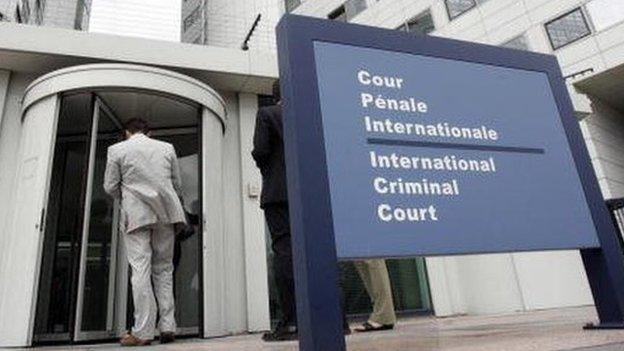Palestinian democracy in doldrums after years under Mahmoud Abbas
- Published
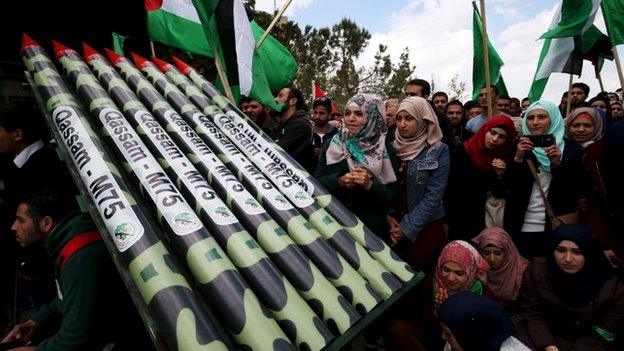
Hamas won student council elections at Birzeit University
A prestigious West Bank university is the latest venue where the drama of Palestinian politics has been playing out.
A young woman - who does not wear an Islamic headscarf - caused a stir on social media when she declared that Hamas was "best to protect students' rights".
But there was shock when the Islamist movement, which controls the Gaza Strip, went on to win the elections, external at Birzeit University last month.
It is usually a stronghold of its secular, Western-backed, political rival, Fatah.
"It was not that Hamas advanced, rather that Fatah went backwards," bemoans a Fatah youth activist in Ramallah, Madelene Manna.
"Even some students who were with Fatah voted for other factions as a protest."
The outcome was widely seen as another sign of dissatisfaction with the Fatah-dominated Palestinian Authority (PA) and its ageing leader, President Mahmoud Abbas.
"To a degree, the results reflect public opinion," says George Giacaman, a Birzeit University politics professor.
"The PA is suffering from a severe crisis of legitimacy. It's failed to achieve anything substantial as far as ending the occupation or taking concrete steps to establishing an independent, Palestinian state."
Failed negotiations
The PA was set up as an interim administration for the major Palestinian cities in the West Bank and Gaza after the 1993 Oslo Accord, external.
It was envisaged that a comprehensive treaty would be concluded within five years.

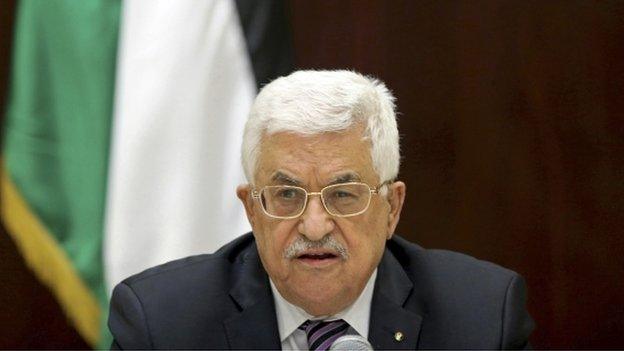
President Mahmoud Abbas:
Born in Safed, but his family fled to Syria during the 1948 Middle East war.
Graduated from the University of Damascus, where he studied law.
In the mid-1950s, became heavily involved in underground Palestinian politics, joining a number of exiled Palestinians in Qatar.
Recruited to become a member of Fatah in 1961.
In 2004 endorsed by Fatah's Revolutionary Council as its preferred candidate for the presidential election.
Elected with 62% of the vote as President of the Palestinian National Authority in 2006.

However, more than two decades of talks with Israel have failed to achieve a final peace settlement and an independent Palestinian state. The last round of negotiations collapsed a year ago.
The authority continues to manage Palestinian affairs in parts of the West Bank. However, it lost control of Gaza to Hamas in bloody fighting in 2007 - a year after the group won the last legislative elections.
Although Fatah and Hamas formally agreed a unity deal and a technocratic government, deep divisions remain, resulting in political paralysis.
This has been more apparent since last summer's devastating war between Hamas militants in Gaza and Israel, in which more than 2,100 Palestinians were killed, including hundreds of civilians, and thousands of homes destroyed. On the Israeli side, 67 soldiers and six civilians were killed.
The United Nations brokered a deal with Israel to ease its blockade of the coastal enclave - which it says it imposes because of security reasons - and allow in large amounts of building materials.
However Hamas is not handing control of border crossings to the PA as the agreement requires.
Meanwhile, Fatah accuses Hamas of trying to create an independent Islamic state in Gaza; Hamas provokes Fatah by saying it avoids new general elections as it fears losing them.
Declining popularity
Mr Abbas, now 80, is currently serving the 10th year of what was initially meant to be a four-year term in office.
Long disliked in Gaza, his popularity in the West Bank has also declined.
From the start of the year until last month, the PA could not fully pay civil servants' salaries, exacerbating economic woes.
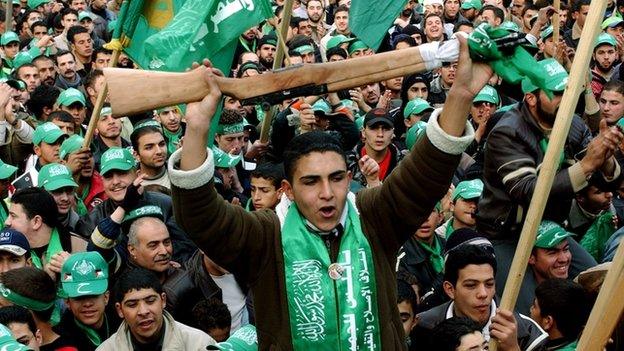
Hamas won the 2006 Palestinian election
This was because Israel withheld tax revenues, external after the Palestinians joined the International Criminal Court (ICC) intending to challenge military action in Gaza and the expansion of Jewish settlements in the occupied territories.
There have been clashes, external in refugee camps as Palestinian security forces carried out raids for weapons. While the PA insists it is tackling crime, many view this as part of its controversial security co-ordination with Israel.
"They are arresting people from the camps for political reasons. At the same time we are going to the ICC?" says Mohammed, an exasperated community leader in Bethlehem's Dheisha Camp.
"We are tired from all these leaders. We need new ones. The elite make themselves more rich, even Hamas. Once they have power they want to keep it."
Damaging infighting
Mr Abbas, a plodding, grey politician, has not openly cultivated a successor as he has focused on keeping his grip on power. His image has often been tarnished by Fatah infighting.
The wealthy, Gaza strongman, Mohammed Dahlan, continues to openly challenge the president. He was expelled from Fatah in 2011 and the two men have traded charges of corruption.
But the Palestinian leader - also known as Abu Mazen - continues to be backed by key foreign donors - the United States and the European Union - and is tacitly accepted by Israel.
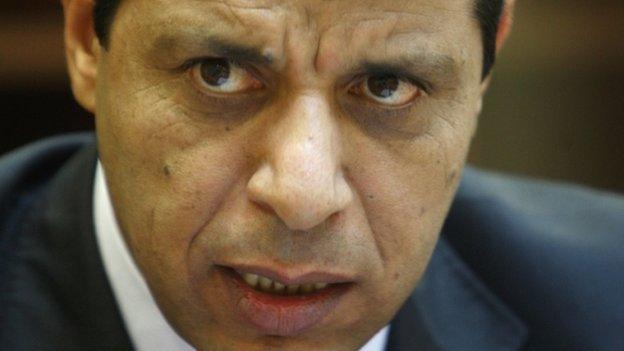
Mohammed Dahlan challenges the president
His avowed commitment to non-violence stands in stark contrast to Hamas, which believes in armed struggle and is classified as a terrorist group by the US, Israel and others. Its 2006 election win led to international isolation.
However there is also an Israeli perception of him as weak.
"I have to say, he's been a bit of a disappointment," said Udi Segal, the veteran Israeli diplomatic correspondent who most recently interviewed him for Channel Two News.
"In negotiations with Israel he didn't have courage enough to face his own people and tell them the basic truth of compromise."
The new Israeli government includes right-wing, religious and nationalist parties that are uninterested in restarting peace talks. Its one-seat majority is likely to make it unstable.
At the same time, Palestinians lament their broken democracy.
After the Birzeit upset, human rights groups condemned the detention of several students affiliated with Hamas by Mr Abbas' security forces.
And amid concerns about further friction, other West Bank institutions - al-Najah University in Nablus and Hebron University - delayed their elections.
- Published6 April 2015
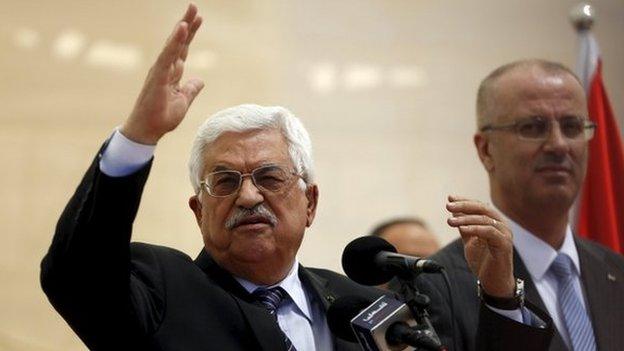
- Published2 January 2015
